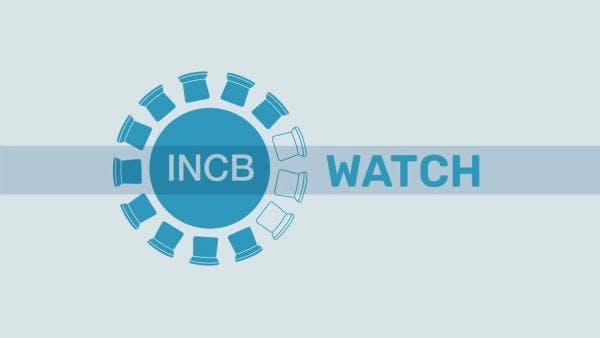The promise and the threat: Sumyai overreacts to Thai election pledge
Later this month, Thailand is due to hold general elections. One of the Parties, the Bhumjaithai Party has, as part of its platform, promised to ‘liberalise’ the cultivation of cannabis plants. Speaking at an INCB seminar in Bangkok, the Board’s President Dr Viroj Sumyai remarked that this would be ‘a very difficult promise to realise’. He then went considerably further, addressing the audience of government officials in alarming terms: ‘If Thailand wants to liberalise the cultivation of cannabis, it must leave the 1961 Single Convention on Narcotic Drugs, and will stand to lose many benefits involving the trade and import of medicines’.
It is curious that Dr Sumyai has chosen to speak in such strident terms to a member state of the CND. Dr Sumyai is himself of Thai nationality, and perhaps he feels this gives him the right to enter the political fray. However, it is not as though the Thai state has announced that it will adopt liberal measures with regard to cannabis cultivation; this was merely an election promise, and it is not unknown for such a form of public discourse to fail to materialise. Whatever – the most important issue here is whether Dr Sumyai’s threat is realistic. Would Thailand really be forced to leave the international drug control conventions, and would the Thai population be compelled by the Board to go without medicines?
The INCB President appears to be making a veiled reference to Article 14 of the Single Convention. Entitled ‘Measures by the Board to ensure the execution of provisions of the treaties’, this article spells out the measures that can be taken in the case of a Party to the treaty seriously threatening the aims of the Convention by its failure to carry out its provisions.
Article 14 states that, if ‘the Board has objective reasons to believe that the aims of this Convention are being seriously endangered by reason of the failure of any Party, country or territory to carry out the provisions of this Convention, the Board shall have the right to propose to the Government concerned the opening of consultations or to request it to furnish explanations.’
Subsequently, ‘the Board, if satisfied that it is necessary to do so, may call upon the Government concerned to adopt such remedial measures as shall seem under the circumstances to be necessary for the execution of the provisions of this Convention.’
The Board can also call upon the country to carry out a study of the problem. All of the Board’s interventions, it should be noted, must be carried out respectfully, and in a spirit of consultation. The Board does not have the right to threaten and bully the country in question. If consultations do not work, and the country does not take ‘remedial measures’, the INCB can take the matter to the members states, to CND and ECOSOC.
This where the Board can, on the face of it, bring out its big guns. Article 14 para. 2 states –
‘The Board, when calling the attention of the Parties, the Council and the Commission to a matter… may, if it is satisfied that such a course is necessary, recommend to Parties that they stop the import of drugs, the export of drugs, or both, from or to the country or territory concerned, either for a designated period or until the Board shall be satisfied as to the situation in that country or territory.’
Here, the Single Convention is really showing its age. Consider, how would the Human Rights treaty bodies, and many member states, react to the prospect of a population being deprived of essential medicines? If the Board tried to do this, it would widely, and rightly, be considered an outrage. Moreover, the INCB has no powers to directly impose such measures: all it could do would be to recommend that member states stop the export of controlled drugs to Thailand.
In practical terms then, regardless of the outdated provisions of the Single Convention, such measures could not be implemented.
On a final note, a couple of points should be recognised. Article 14 is only invoked in emergency conditions. The last time was in the case of Afghanistan; the Board invoked Article 14 in 2000, and it is still in place. Meanwhile, record production of opium and heroin continues in Afghanistan, despite the INCB’s consultations with the country’s governments, including both the Taleban and the notoriously corrupt Karzai government. A huge producer of heroin and cannabis, Afghanistan is also one of the poorest countries in the world, and was never threatened with the denial of imports of controlled medicines.
All of which makes Dr Sumyai response to an election promise rather disproportionate.
Topics
Related Profiles
- International Narcotics Control Board (INCB)
